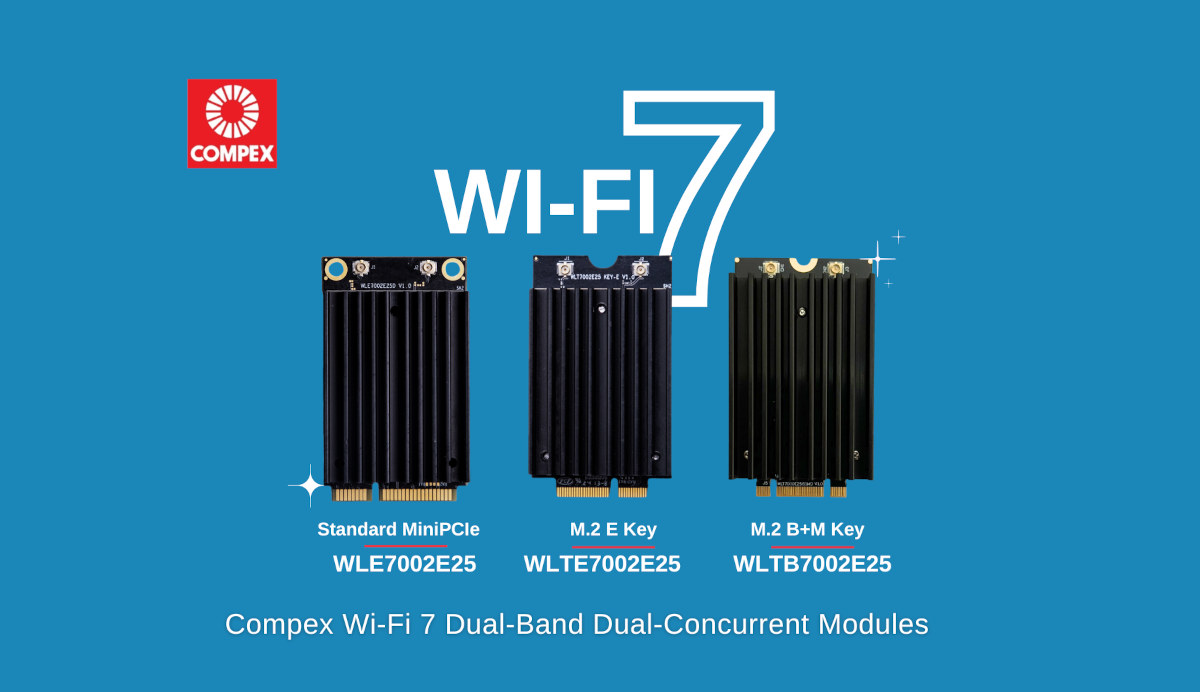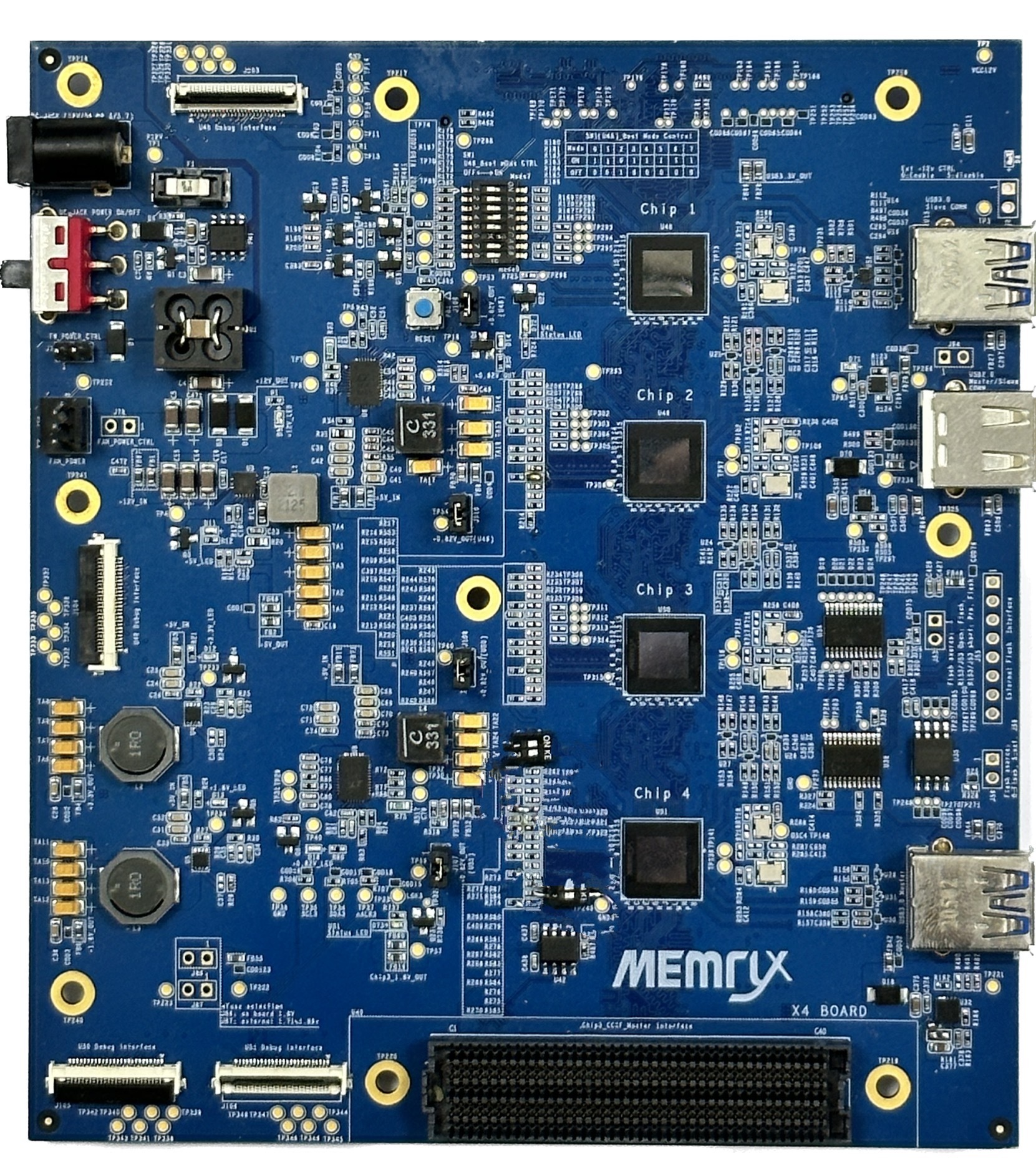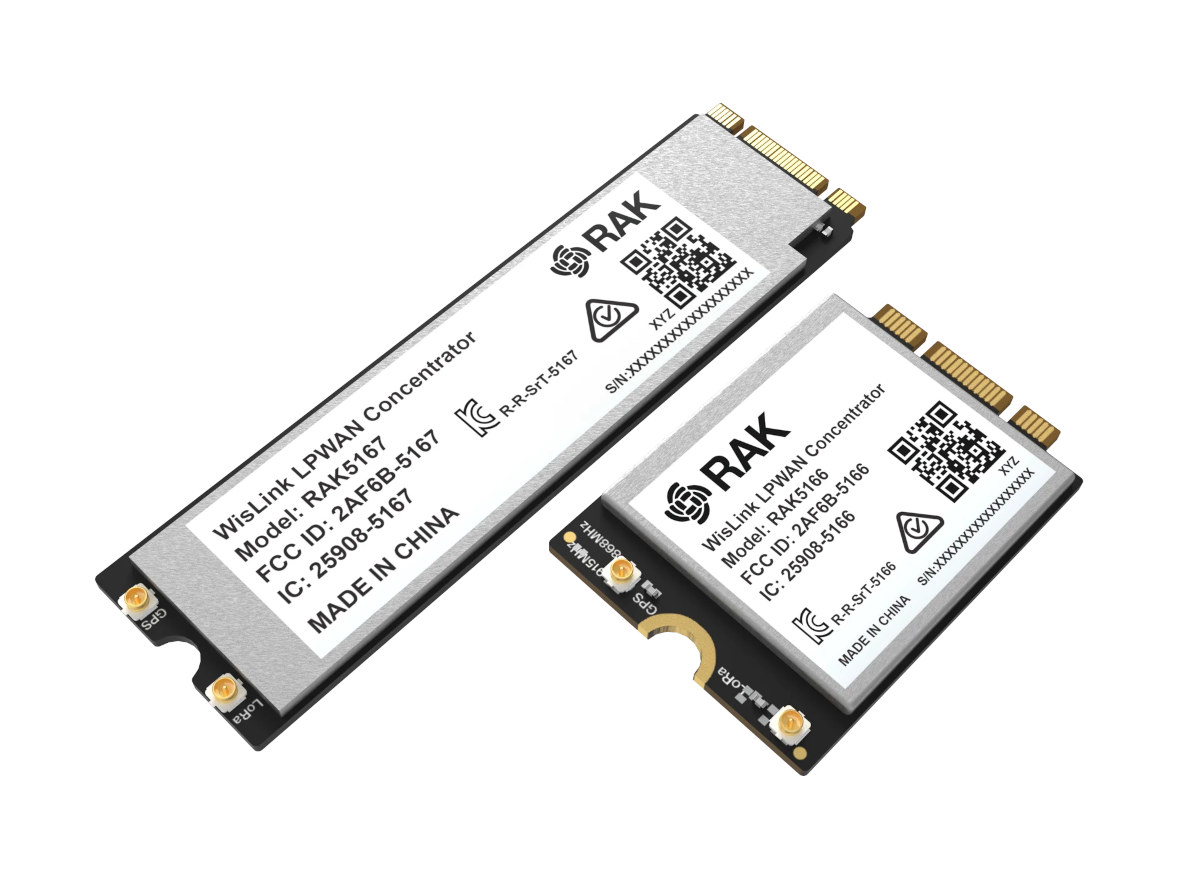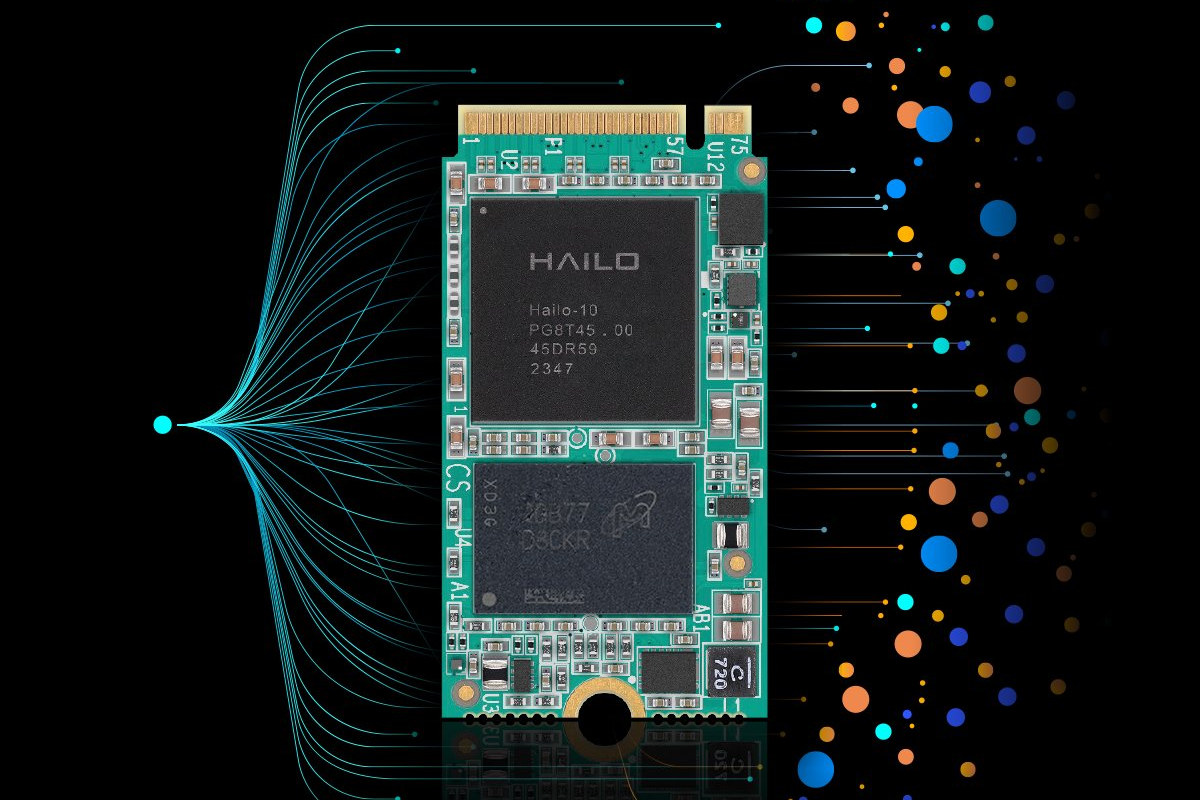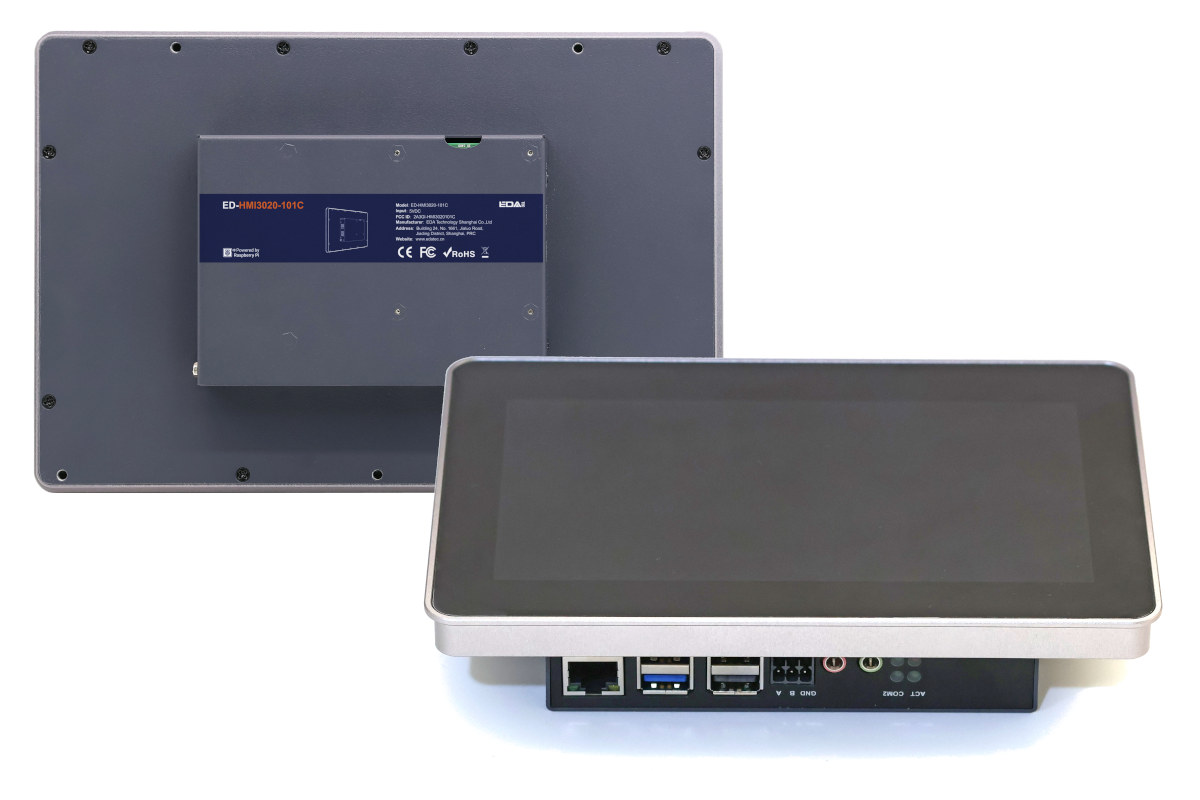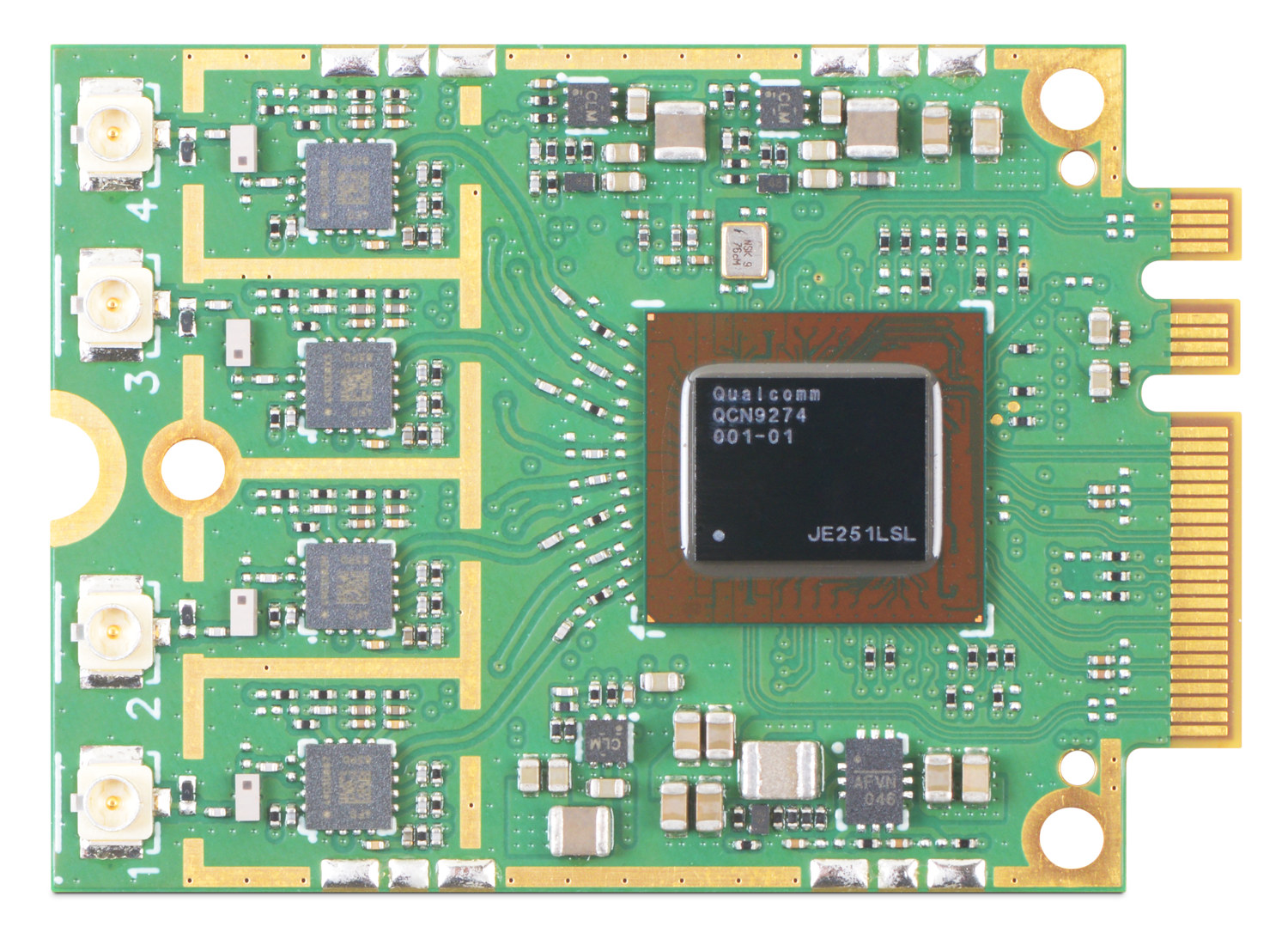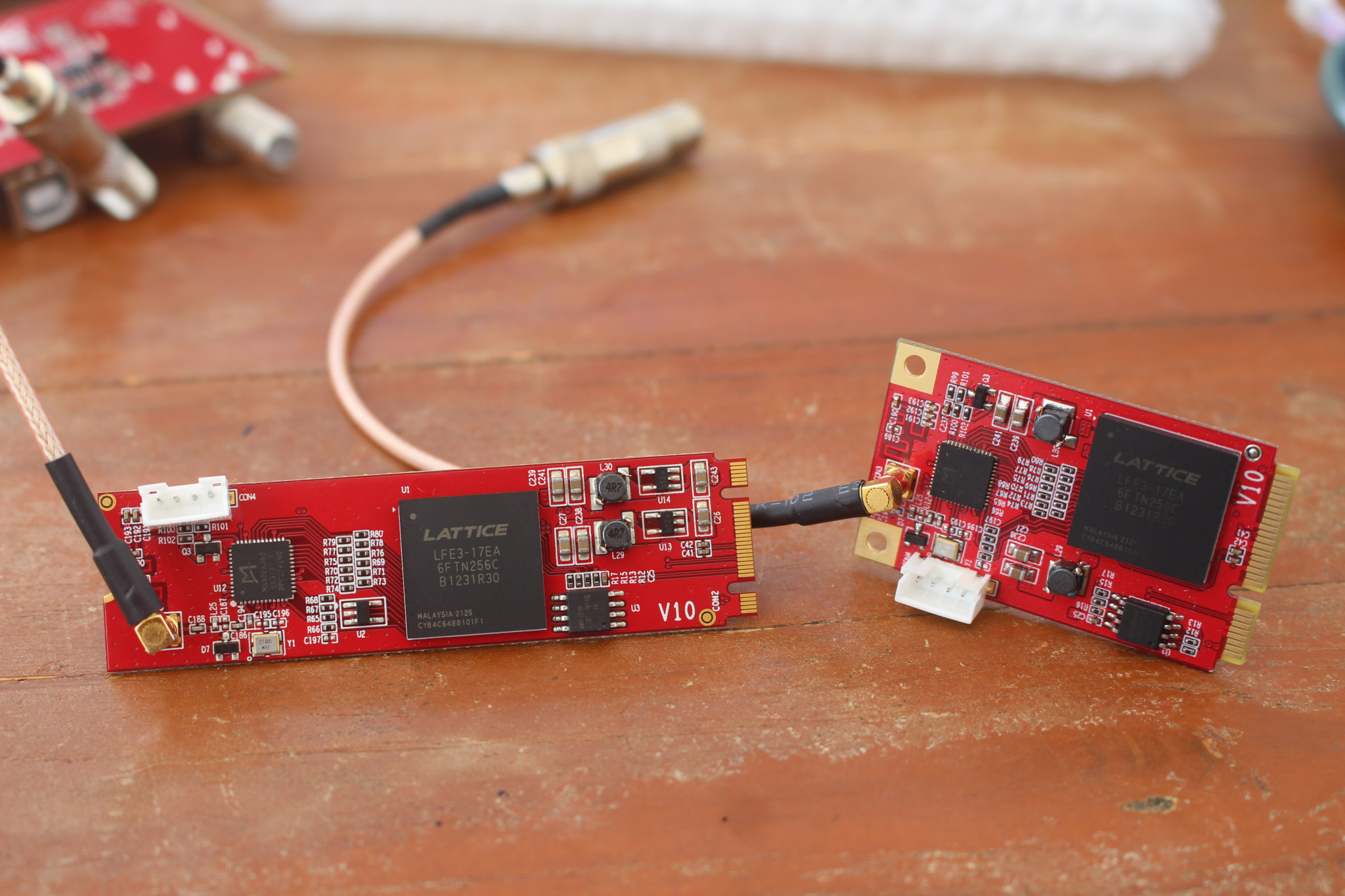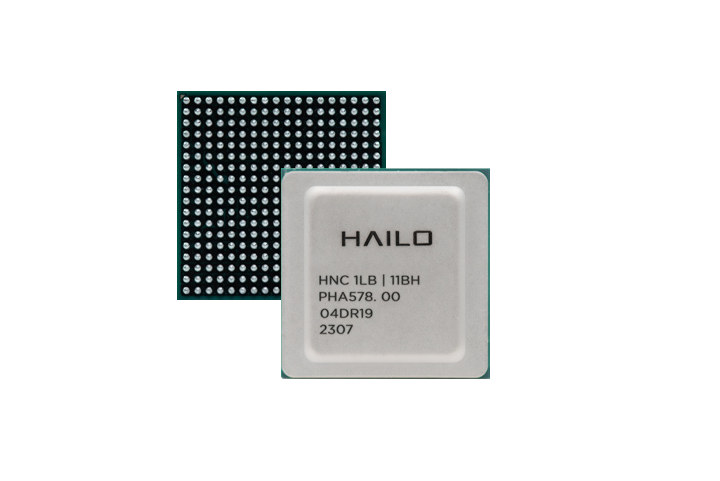Compex Systems (Compex) is set to take wireless connectivity to the next level with the latest expansion of its popular dual-band Wi-Fi 7 module lineup. Introducing the new M.2 variants, including WLTB7002E25 with an M.2 B+M Key and the WLTE7002E25 with an M.2 E Key, these additions complement the Compex’s existing WLE7002E25, which features the popular standard mini PCIe form factor. Together, these Wi-Fi 7 modules offer comprehensive solutions with enhanced performance, flexibility, and compatibility — all at competitive Wi-Fi 6 prices. Powered by Qualcomm’s QCN6224, QCN6274 and QCN9274 Waikiki series radio chipsets, the WLE/WLTE/WLTB7002E25 are dual-band concurrent 2.4+5GHz Wi-Fi 7 (802.11be) modules, offering wider signal coverage by transmitting both bands concurrently, reducing latency with Multi-Link Operation (MLO) support, featuring OFDMA and 4096 QAMs. Delivering up to 20dBm per chain, these 2×2 MU-MIMO models are ideal for enterprise, industrial, cybersecurity, transportation, and SMB applications. “Our expanded Wi-Fi 7 module lineup […]
MemryX MX3 edge AI accelerator delivers up to 5 TOPS, is offered in die, package, and M.2 and mPCIe modules
Jean-Luc noted the MemryX MX3 edge AI accelerator module while covering the DeGirum ORCA M.2 and USB Edge AI accelerators last month, so today, we’ll have a look at this AI chip and corresponding modules that run computer vision neural networks using common frameworks such as TensorFlow, TensorFlow Lite, ONNX, PyTorch, and Keras. MemryX MX3 Specifications MemryX hasn’t disclosed much performance stats about this chip. All we know is it offers more than 5 TFLOPs. The listed specifications include: Bfloat16 activations Batch = 1 Weights: 4, 8, and 16-bit ~10M parameters stored on-die Host interfaces – PCIe Gen 3 I/O and/or USB 2.0/3.x Power consumption – ~1.0W 1-click compilation for the MX-SDK when mapping neural networks that have multiple layers Under the hood, the MX3 features MemryX Compute Engines (MCE) which are tightly coupled with at-memory computing. This design creates a native, proprietary dataflow architecture that utilizes up to 70% […]
RAKwireless launches SX1303 based M.2 LoRaWAN concentrator modules and full-duplex gateway
RAKwireless has recently introduced two new LoRaWAN products with the RAK5166/67 WisLink M.2 3042/2280 concentrator module based on the Semtech SX1303 RF transceiver and the RAK7285 WisGate Edge Ultra Full-Duplex gateway for high-density network deployments, particularly for smart city infrastructure, metering applications, and other scenarios requiring reliable two-way communication at scale. RAK5166 and RAK5167 M.2 3042 and 2280 LoRaWAN concentrator modules RAK5166/RAK5167 specifications: Wireless Semtech SX1303 baseband processor with 8 x 8 channels LoRa packet detectors, 8x SF5-SF12 LoRa demodulators, 8x SF5-SF10 LoRa demodulators, one 125/250/500 kHz high-speed LoRa demodulator, and one (G)FSK demodulator Tx power up to 27 dBm Rx sensitivity down to -139 dBm @ SF12, BW 125 kHz Supports global license-free frequency band (EU868, IN865, RU864, US915, AU915, KR920, AS923-1, AS923-2, AS923-3, AS923-4) Listen Before Talk (LBT) support Fine Timestamp Built-in ZOE-M8Q GPS module (optional) 2x MHF4 IPEX connectors for the LoRa and GNSS (optional) antennas Host […]
Hailo-10 M.2 Key-M module brings Generative AI to the edge with up to 40 TOPS of performance
Hailo-10 is a new M.2 Key-M module that brings Generative AI capabilities to the edge with up to 40 TOPS of performance at low power. It targets AI PCs supporting only the Windows 11 operating system on x86 or Aarch64 targets at this time. Hailo claims the Hailo-10 is faster and more energy efficient than integrated neural processing unit (NPU) solutions found in Intel SoCs and delivers at least twice the performance at half the power of Intel’s Core Ultra “AI Boost” NPU. Hailo-10 module specifications: AI accelerator – Hailo-10H System Memory – 8GB LPDDR4 on module Host interface – 4-lane PCIe Gen 3 Power consumption – Less than 3.5W (typical) for the chip Form factor – M.2 Key M 2242 / 2280 Supported AI frameworks – TensorFlow, TensorFlow Lite, Keras, PyTorch & ONNX The Hailo-10 can run Llama2-7B with up to 10 tokens per second (TPS) at under 5W […]
Raspberry Pi 5 industrial HMI displays gain M.2 NVMe SSD, RS232/RS485 interfaces, audio input/output jacks
EDATEC ED-HMI3020 is a family of Raspberry Pi 5-based industrial HMI displays that build upon the earlier ED-HMI3010 panel PCs by adding an M.2 socket for NVMe SSD, RS232 and RS485 interfaces, as well as 3.5mm audio input and output jacks. The new models are still offered with either a 7-inch (1024×600) or 10.1-inch (1200×800) touchscreen display, a Raspberry Pi 5 with 4GB or 8GB RAM with all main ports (HDMI, Ethernet, USB) accessible externally, and support for an optional 8MP front-facing camera. ED-HMI3020 specifications with differences again ED-HMI3010 highlighted in bold or strikethrough: SoC – Broadcom BCM2712 CPU – Quad-core Arm Cortex-A76 processor @ 2.4 GHz with crypto extensions, 512KB per-core L2 caches, 2MB shared L3 cache GPU – VideoCore VII GPU @ 800 MHz with support for OpenGL ES 3.1, Vulkan 1.2, 4Kp60 HEVC decoder System Memory – 4GB or 8GB LPDDR4X-4267 SDRAM Storage MicroSD card socket M.2 […]
8Devices Noni M.2 WiFi 7 module supports FirmUx embedded Linux distribution
8Devices Noni is a family of M.2 A+E-Key WiFi 7 modules built on the QCN9274/QCN6274 chipsets, delivering up to 11 Gbps link rate in 4×4 MIMO or split 2×2 + 2×2 configurations, and supporting FirmUX embedded Linux OS. The Noni modules support Multi-Link Operation (MLO) for simultaneous communication on different frequencies and adaptive interference puncturing in order to maintain performance in various environments and the QCN9274-based variants also support advanced features such as Provisioned Multi-Link, Dense deployment, and Location and RF sensing. 8devices Noni specifications: All the Noni modules support a 2-lane PCIe Gen 3 interface connection to the host device. 8devices Noni modules support the FirmUX embedded Linux platform that provides developers a choice between fully open-source or proprietary Qualcomm drivers. The OS enables WPA3 security, comes with a responsive UI dashboard, supports Wireguard VPN, and the company claims up to 34 percent improvement over OpenWrt on the earlier […]
M.2/mini PCIe card adds DVB-S2X/S2 tuner to desktop PCs and (some) SBC’s
TBS has designed two small DVB-S2X/S2/S tuner cards with the TBS7230 M.2 module and TBS7901 mini PCIe module designed to easily add DTB support to a desktop PC or even a single board computer with the right interfaces. Both models are based on a Lattice Semi LFE3-17EA-6FTN256C FPGA and Montage LZ M88RS6060 single-chip DVB-S2X/S2/S receiver with a tuner, a demodulator, and an LNB controller, but as I understand it, the mPCIe module relies on a USB PCIe (see comments section) interface, while the M.2 module features a PCIe interface and you can even install more than one in a PC through a PCIe card for NVMe drives. TBS7901 specifications: Host interface – Mini PCIe edge connector Tuner DVB-S2X/S2/S DVB-S2 QPSK – 1/2, 3/5, 2/3, 3/4, 4/5, 5/6, 8/9, 9/10 8PSK – 3/5, 2/3, 3/4, 5/6, 8/9, 9/10 16APSK – 2/3, 3/4, 4/5, 5/6, 8/9, 9/10 32APSK – 3/4, 4/5, 5/6, […]
Hailo-8L 13 TOPS AI accelerator targets entry-level edge devices
Hailo introduced the Hailo-8 AI accelerator offering up to 26 TOPS in 2020, and we’ve found it integrated into many designs since then. The company has now launched a cost-down version with the Hailo-8L AI accelerator delivering up to 13 TOPS for more cost-sensitive entry-level edge devices, or workloads that do not require the more powerful Hailo-8. Hailo says the Hailo-8L offers low-latency, high-efficiency processing, and is capable of handling pipelines with multiple real-time streams and concurrent processing of multiple models and AI tasks. The new Hailo-8L is compatible with the Hailo-8 and relies on the same Hailo-8 software suite, so they could be integrated into existing designs for cost savings. Hailo-8L key features and specifications: 13 Tera-Operations Per Second (TOPS) Real-time, low latency & high-efficiency AI inferencing on edge devices No external memory required Scalable with simultaneous processing of multi-streams & multi-models Typical power consumption – 1.5W Commercial & […]


